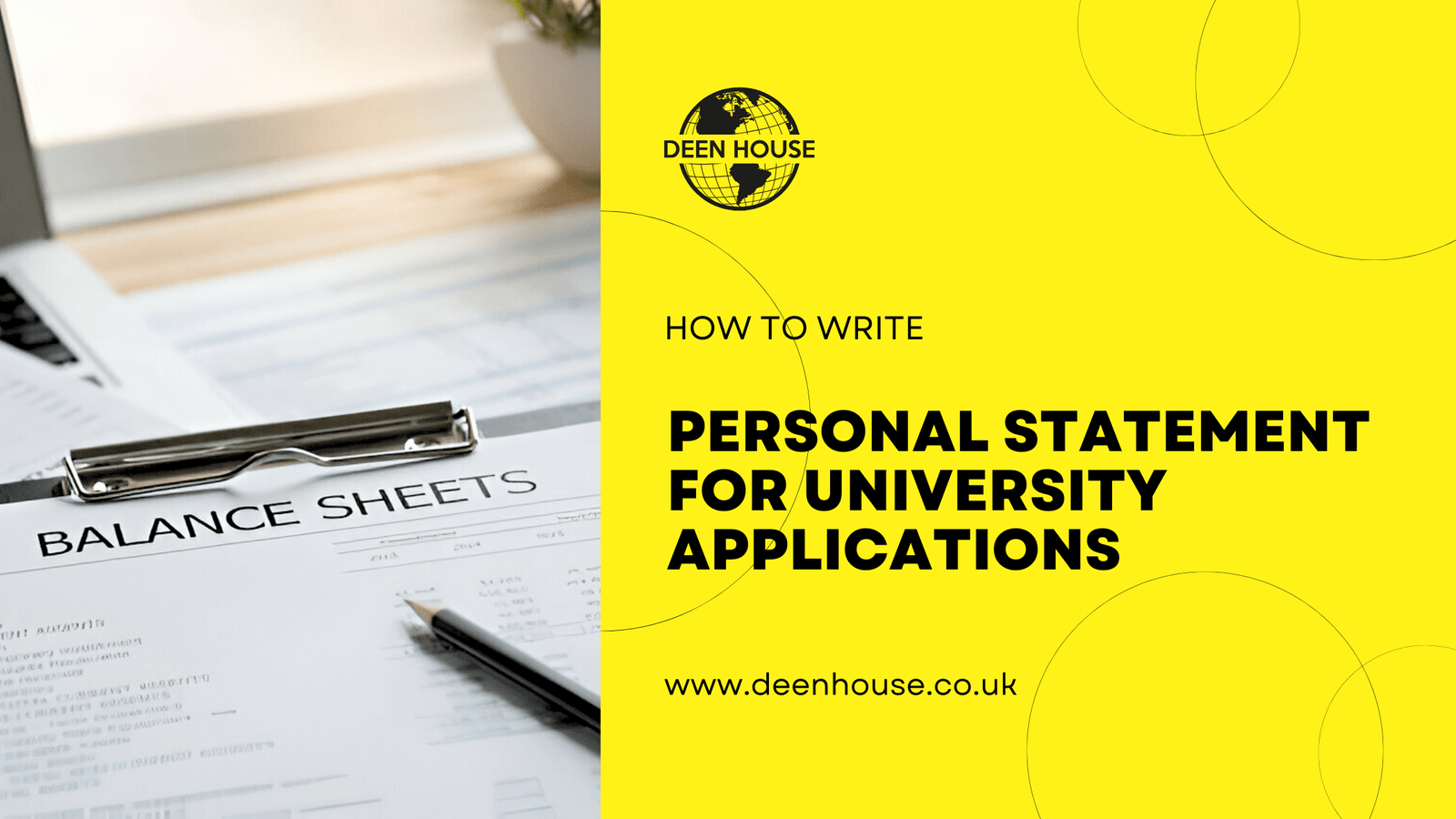University application in the UK is an exciting move—particularly for Indian students wishing to pursue studies abroad. But most are left wondering: How do I write a personal statement for UK Universities that is sure to make an impression?
You’re in good company. Creating a personal statement is daunting. How do you capture your success, aspirations, and personality in 4,000 characters? The good news is, with planning and candour, you can write a compelling statement that truly represents you.
This guide will take you through writing a personal statement for UK universities, with useful tips specifically for Indian and other overseas students.
Why a Good Personal Statement Is Important
Your personal statement for UK universities is your opportunity to talk directly to the admissions staff. Grades and exam marks are crucial, but they do not tell the whole picture. An effective personal statement emphasizes:
- Your enthusiasm for your preferred subject
- The path that led you to this point
- Distinctive experiences that informed your mind
- Why you are an ideal candidate for the course and university
For overseas students, it’s particularly important — it indicates your background, communication skills, and preparedness to study abroad.
Also read: 8 British English Phrases International Students Should Know
What to Put in Your Personal Statement
Consider it to be your academic history and future ambitions. This is what works best:
1. Begin With Your “Why”
Start with a particular reason why you’re passionate. Steer clear of clichés such as “I’ve always wanted to…”
Example:
“My passion in computer science started when I was part of a school coding competition in Delhi. I created an app that enabled friends to organize study sessions.”
2. Academic Achievements and Skills
Mention topics about your course, good grades, pertinent projects, or subjects you enjoyed. It demonstrates you’re academically ready.
3. Work Experience or Extracurricular Activities
Mention internships, volunteering, sports, or clubs. These emphasize skills such as teamwork, responsibility, and leadership.
Example:
“Volunteering with an NGO in Mumbai taught me valuable project management skills and strengthened my commitment to community service.”
4. Personal Qualities and Motivation
Think about qualities such as creativity, problem-solving, or leadership. Illustrate these using examples from your background.
5. Future Goals and Why This University
Describe your career aims and how the course or university will assist you in achieving them. Use particular modules, lecturers, or facilities.
Example:
“The University of Manchester’s emphasis on AI ethics fits my aim of creating responsible technology for public usage in India.”
Practical Advice for Writing Your Personal Statement
- Begin Early: Allow yourself time to think, draft, and work your way through several drafts.
- Be Genuine and Personal: Honesty trumps perfection every time.
- Use Clear, Positive Language: Simple words communicate best.
- Get Feedback: Have teachers, mentors, or family review your drafts.
- Avoid Plagiarism: UCAS checks for originality, so write your own story.
Common Mistakes to Avoid
- Being vague (e.g., “I like science” without explaining why)
- Exaggerating experiences you can’t prove
- Focusing only on achievements without reflecting on lessons learned
- Writing too formally — your natural voice is better
Tailoring Your Statement for Different UK Universities
Your central statement remains the same, but adjust portions to suit each university’s strengths:
- Research course material and refer to applicable modules
- Emphasize university values that appeal to you
- Refer to specific facilities or opportunities
Example:
“I am drawn to King’s College London’s Urban Lab, which aligns with my passion for sustainable urban planning.”
Conclusion: Your Story, Your Voice
Your personal statement is not a mere formality—it’s your opportunity to bond with the admissions staff and tell them why you deserve a place at their university. Begin early, think carefully, and allow your real self to shine.
Begin your application confidently by composing a personal statement that best expresses your passion and objectives.
FAQs
Q: How long does my personal statement need to be?
A: Approximately 4,000 characters or 47 lines. Brief yet effective.
Q: May I include my cultural background?
A: Absolutely! Telling about how your background influences your outlook is compelling.
Q: What if English is not my native language?
A: Write in plain, simple English. Have a native speaker proofread for you.
Q: How can I get my statement to stand out?
A: Be specific, authentic, and show your passion and individuality.
